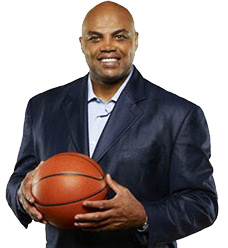In 2016, Charles Barkley marked Black History Month with a daily spotlight on local African-American heroes. Many of them didn’t make it into the history books or even the newspapers of their time. But their stories are inspiring and worth knowing. Here’s another look.
10
Rebecca Cole
Doctor
Rebecca Cole
Doctor
(March 16, 1846 – August 14, 1922)
A staunch advocate for the poor and for women, Rebecca J. Cole was the second female African-American doctor in the United States, who practiced in South Carolina, North Carolina, Washington, D.C. and Philadelphia.
In 1873, she created Women’s Directory Center, which specialized in legal and medical services for poor women and children, often in their own homes.
Cole’s firsthand view of poverty informed her public argument with sociologist W.E.B. DuBois, who argued in his landmark 1899 study, The Philadelphia Negro, that African Americans were dying of consumption because they were ignorant of proper hygiene.
Cole accused DuBois of collecting erroneous data from slumlords, and instead argued that high African-American mortality rates were the fault of white doctors, who refused to collect complete medical histories of their black patients.
She also argued her own case, when needed. When working as a representative for the Ladies’ Centennial Committee of Philadelphia, helping to plan the 100th anniversary of the Declaration of Independence, she was asked to form a separate Colored Ladies Sub-committee. Cole refused, arguing that black women should be able to work alongside the rest of the committee, not in a separate group.
She won.
![]() EDUCATION:
EDUCATION:
- Institute of Colored Youth, 1863
- New England Female Medical College, 1864
- Woman’s Medical College of Pennsylvania 1867
ACCOMPLISHMENTS:
- Second African American female doctor in the U.S.
- Representative for the Ladies’ Centennial Committee of Philadelphia, which planned the 100th Anniversary of the Declaration of Independence in 1876
- Practiced medicine for 50 years and set up practices in Washington D.C., South Carolina, North Carolina and Philadelphia
- Superintendent of the Home for Destitute Colored Women and Children in Washington, starting in 1899
FINAL WORD:
In an annual report for the Home for Destitute Colored Women and Children, the report recalled “Dr. Cole herself has more than fulfilled the expectations of her friends. With a clear and comprehensive view of her whole field of action, she has carried out her plans with the good sense and vigor which are a part of her character, while her cheerful optimism, her determination to see the best in every situation and in every individual, have created around her an atmosphere of sunshine that adds to the happiness and well being of every member of the large family.”
Home page image © 2004 City of Philadelphia Mural Arts Program / Don Gensler. Photo by Jack Ramsdale



